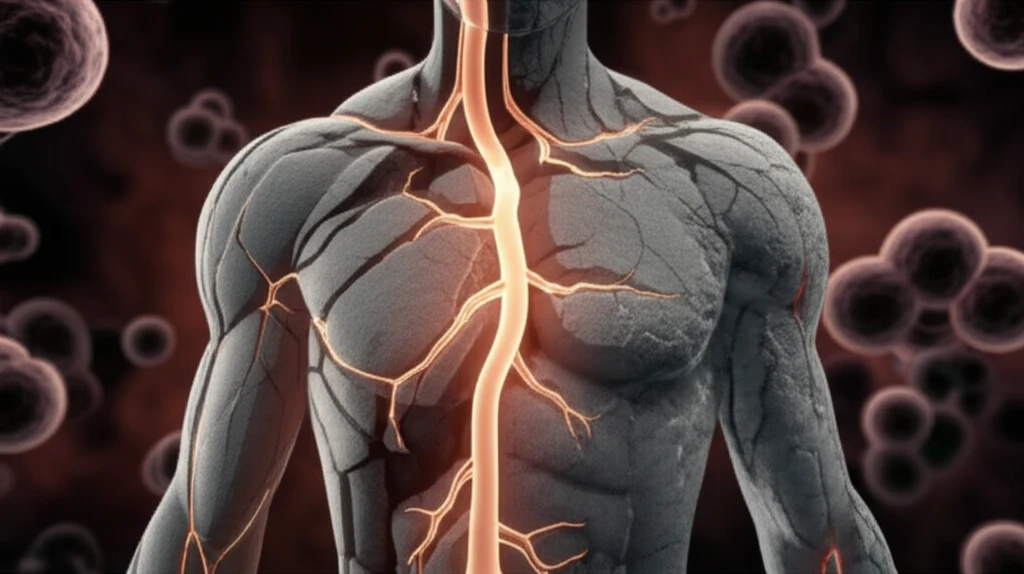
Rare Cancer Alert: When Penile Cancer Mimics a Hormone Disorder
"Unveiling the unexpected link between penile squamous cell carcinoma and parathyroid-related peptide (PTH-rP) secretion: A case study."
Hypercalcemia, characterized by elevated calcium levels in the blood, is a serious condition often linked to cancer. It occurs when cancer cells release substances that disrupt the body's normal calcium balance. This disruption can lead to a range of complications, significantly impacting a patient's prognosis and quality of life. Understanding the causes and mechanisms behind hypercalcemia in cancer is crucial for effective diagnosis and management.
Penile cancer, while relatively rare, presents unique challenges in diagnosis and treatment. Squamous cell carcinoma is the most common type, often linked to factors such as HPV infection and poor hygiene. Early detection is vital, as the disease can progress rapidly if left untreated. Recognizing unusual symptoms and seeking prompt medical attention are key to improving patient outcomes.
A recent case study sheds light on a rare and complex interplay between penile cancer and hypercalcemia. The study details the experience of a 47-year-old man whose penile squamous cell carcinoma led to the ectopic secretion of parathyroid-related peptide (PTH-rP), a hormone-like substance that dramatically elevates calcium levels. This unusual presentation highlights the importance of considering paraneoplastic syndromes in cancer diagnosis.
The Case: Atypical Cancer Presentation

A 47-year-old man presented to the emergency department with severe lesions in the genital area and groin, accompanied by fever, weight loss, and muscle weakness. Physical examination revealed warty-like lesions with ulceration and purulent material. A biopsy confirmed penile invasive squamous cell carcinoma. Initial lab work showed leukocytosis and a significantly elevated total serum calcium level of 15.1 mg/dL (normal range 8.6-10.2 mg/dL), adjusted to an albumin-corrected calcium level of 16.9 mg/dL.
- Initial Symptoms: Severe lesions, fever, weight loss, muscle weakness.
- Diagnosis: Penile invasive squamous cell carcinoma confirmed by biopsy.
- Key Lab Results: High serum calcium, low PTH, elevated PTH-rP.
- Treatment Challenges: Extensive injury and infection limited surgical and chemotherapy options.
Clinical Significance and What to Watch For
This case underscores the importance of considering paraneoplastic syndromes like HHM in patients with cancer. While penile cancer is relatively rare, this case highlights an atypical presentation that can significantly impact patient outcomes. Recognizing the signs and symptoms of hypercalcemia, such as muscle weakness, fatigue, and altered mental status, is crucial for early detection and management. If you or someone you know experiences these symptoms alongside a cancer diagnosis, prompt medical evaluation is essential. Early detection, awareness of paraneoplastic syndromes, and management of hypercalcemia can significantly improve quality of life and treatment outcomes.
